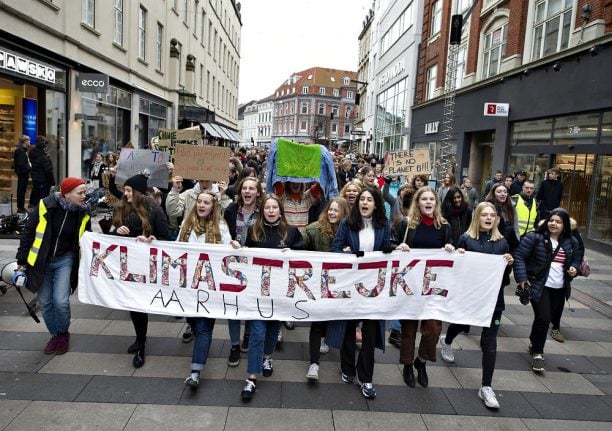The Social Democrats, Socialist People’s Party (SF) and Red Green Alliance on Wednesday evening reached agreement over a target to reduce Danish greenhouse gas emissions by 70 percent by 2030.
“This is incredibly ambitious, I’m very excited. It will make Denmark one of the most ambitious countries in the world on climate and if you’d asked a year ago whether we’d be here now, I’d have said ‘no’,” Danish Society for Nature Conservation president Maria Reumert Gjerding told Ritzau.
Greenpeace Nordic general secretary Mads Flarup Christensen echoed those sentiments.
“It will take a historic effort to set these targets and, not least, to achieve them. If a Social Democrat-led government can get this done, it would be a huge win, both for the climate and for Danish voters,” Christensen said.
The three parties met at Copenhagen’s Christiansborg on Wednesday to discuss climate targets, and have now agreed on the goal of a 70 percent reduction in greenhouse gas emissions by 2030, Ritzau reports.
But the fourth of the ‘red bloc’ of allied parties involved in negotiations over a new government, the Social Liberals, were not present at the meeting. As such, the target has not been backed by all of the parties given an overall mandate by voters in the general election earlier this month.
The Social Liberals have previously stated their commitment to such a target, however.
Danish voters should give themselves a pat on the back for their activism and engagement on climate, according to Gjerding.
“This shows that the massive mobilization of the public (over climate) during the election has been listened to,” she said.
In March, around 30,000 people took park in the national Climate March, which took place in several locations across Denmark.
The Confederation of Danish Industry (DI), a private interest organization made up of approximately 10,000 companies, said ambition on climate was a good thing, but that methods of achieving the targets must be set out.
“We have not seen the methods or financing politicians will use to achieve this. And we think it’s crucial to address this,” DI director Tine Roed told Ritzau.
“We want to be ambitious. We also want to play our part. Danish companies have a lot of technological solutions with regard to green energy conversion,” Roed added.
READ ALSO: Greenland changes increase fears of another devastating year for Arctic



 Please whitelist us to continue reading.
Please whitelist us to continue reading.
Member comments